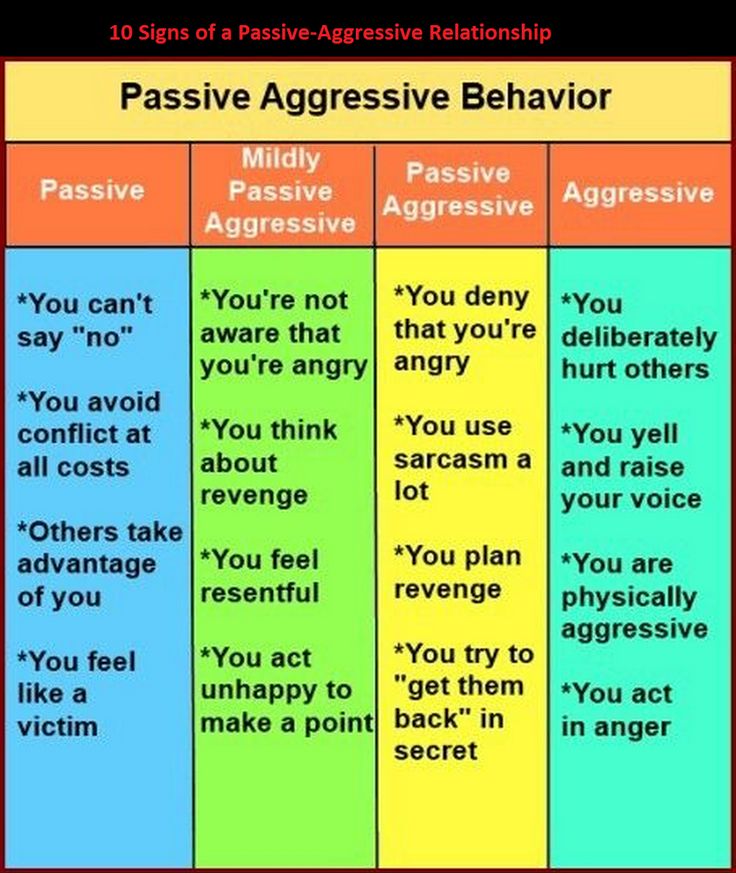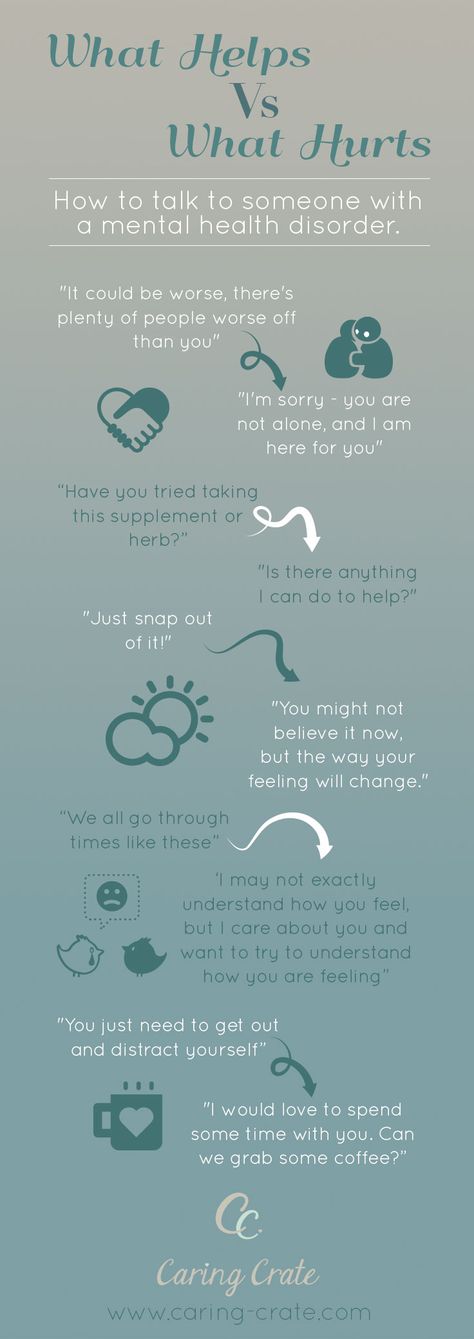Feeling angry and resentful
8 Strategies to Work Through Anger and Resentment
Source: CC0 Public Domain
With the recent U.S. election and upcoming presidential inauguration, feelings of anger and resentment have become more widespread and more intense. Many people seem to be carrying their anger and resentment wherever they go, like an overstuffed suitcase. It is baggage that weighs them down and demands considerable attention and energy. This anger related to recent and current events and the resentment it fuels are contributing factors to ever-greater levels of interpersonal conflict and animosity — including among friends and family members.
Anger
Anger is a normal, natural emotion. In many situations, it’s a healthy and appropriate emotional reaction. Anger is an emotional response to a real or imagined “wrong” or injustice, but sometimes people get angry simply because things don’t go the way they would like. Anger takes place in the present when life isn’t going the way we think it
should. In this way, anger has a corrosive effect — it is a “fight” against present-moment reality, a refusal to accept what is. As Mark Twain put it, “Anger is an acid that can do more harm to the vessel in which it is stored than to anything on which it is poured.”
Most often, anger is a secondary emotion. It can take shape instantly and unconsciously in response to something or someone that evokes feelings of hurt, fear, and/or inadequacy. When most people experience these primary emotions, they feel vulnerable, and their energy and attention are focused inward. For many people, this revealing of vulnerability creates so much distress that the underlying emotions are automatically transformed into anger.
Anger serves several defensive purposes:
- It works as a shield that deflects uncomfortable primary emotions so they can be avoided or kept at a distance.
- It provides a sense of power and control.
- It directs focus outward to identifiable, external scapegoats (individuals, groups, institutions).
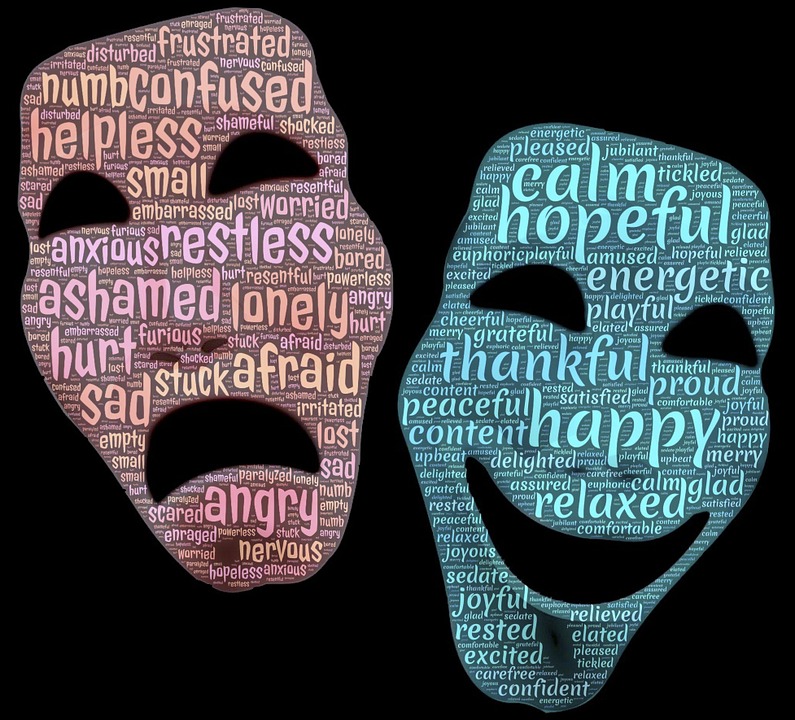 It is almost always easier and more comfortable to focus on the actions of others than it is to focus on oneself.
It is almost always easier and more comfortable to focus on the actions of others than it is to focus on oneself.
Resentment
Resentment is closely related to anger. Resentments are negative feelings, basically ill will, toward someone or something that emanates from the past. Resentment is the re-experiencing of past injustices — real or perceived — and the old feelings of anger connected to them. Resentments form when people get angry toward a person, institution, or situation, and steadfastly hold on to that anger.
Some people hold resentments for many years, refusing to let go of them. Over time, whatever caused the original anger and led to the resentment may be forgotten, while the resentment remains like a still-smoldering ember left after the flames of a fire die down. The fire no longer rages, but the ember remains hot and the fire is at risk of reigniting until it is extinguished.
There is a saying that when you resent somebody, you become his or her slave.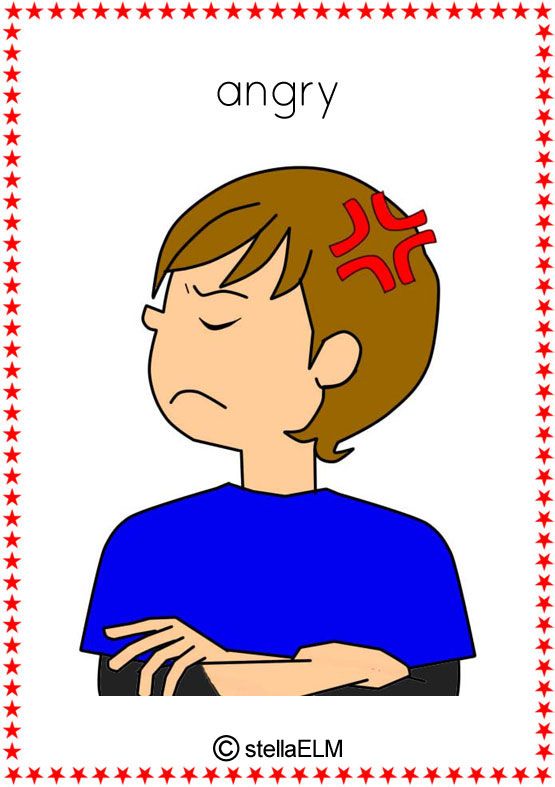 The stronger the resentment is, the more time you spend thinking about it and being caught up in the anger connected to it. This is a form of mental, emotional, and spiritual bondage. Ultimately, the person holding the resentment is the one who suffers the most. Consistent with the 12-step adage, “Holding resentment is like drinking poison and waiting for the other person to die.”
The stronger the resentment is, the more time you spend thinking about it and being caught up in the anger connected to it. This is a form of mental, emotional, and spiritual bondage. Ultimately, the person holding the resentment is the one who suffers the most. Consistent with the 12-step adage, “Holding resentment is like drinking poison and waiting for the other person to die.”
Although of course there are times when anger and resentment are appropriate and justified, often they are built on a foundation of distorted belief that others should or must act the way you want them to. If you allow yourself to become angry or resentful whenever situations don’t go the way you prefer, then you are effectively giving control of your feelings to others. It’s similar to using a remote control to change channels on the TV. If your feelings depend on how other people behave, you are giving them the remote control for your emotions.
Healthy ways to address anger and resentment
There are specific actions you can take to address feelings of anger and resentment in more healthy and helpful ways.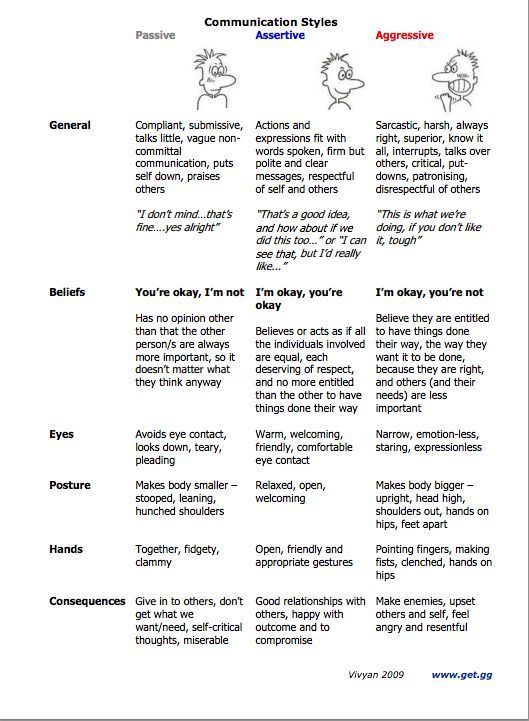
- Practice identifying and allowing yourself to feel the underlying emotions that anger may be superimposed upon — such as hurt or fear. Strive to be present with and accept these feelings and the vulnerability they elicit.
- Practice being consciously present with your anger and resentment. Observe it. Allow it to simply be. Hold it. Visualize putting space around it. Notice what happens.
- Identify how you may have contributed to the situation(s) that you are angry or resentful about. Be aware that people (including you) frequently play a part in the circumstances about which they are angry and/or resentful.
- Practice expressing anger and resentment differently. Share these feelings with safe, supportive individuals whom you trust. Journal or write about them. Discharge them through physical activity by working out, taking a walk or run, going for a hike, or playing a sport. If appropriate to the situation, participate in activities that promote social and economic justice and other forms of nonviolent activism.
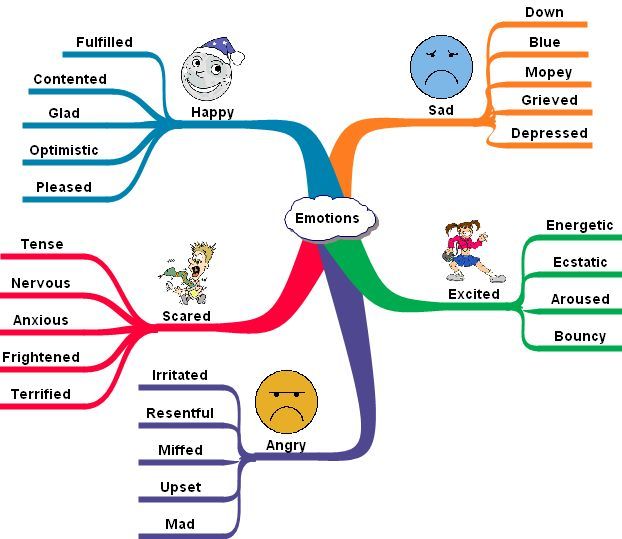
- Learn and practice relaxation and self-calming techniques. Examples include intentional breathing, mindfulness, meditation, yoga, Qi Gong, progressive relaxation, and quiet, unplugged downtime.
- As difficult as it may be, endeavor to practice treating those people you feel angry at or have resentment toward with kindness and compassion. Notice what happens when you change how you act toward them — they will often change how they act toward you.
- Resist the urge to be a channel for the anger and resentment of others. The anger and resentment of others can be seductive — they can have an almost magnetic pull. Don’t buy into it; resist the urge to join in their negativity or participate in gossip.
- Practice applying the understanding that unless you’ve learned how to change the past, it’s as good as it’s ever going to get. Find ways to remind yourself of this whenever you need to — you don’t have to like what’s happening in the present or has happened in the past in order to accept it.
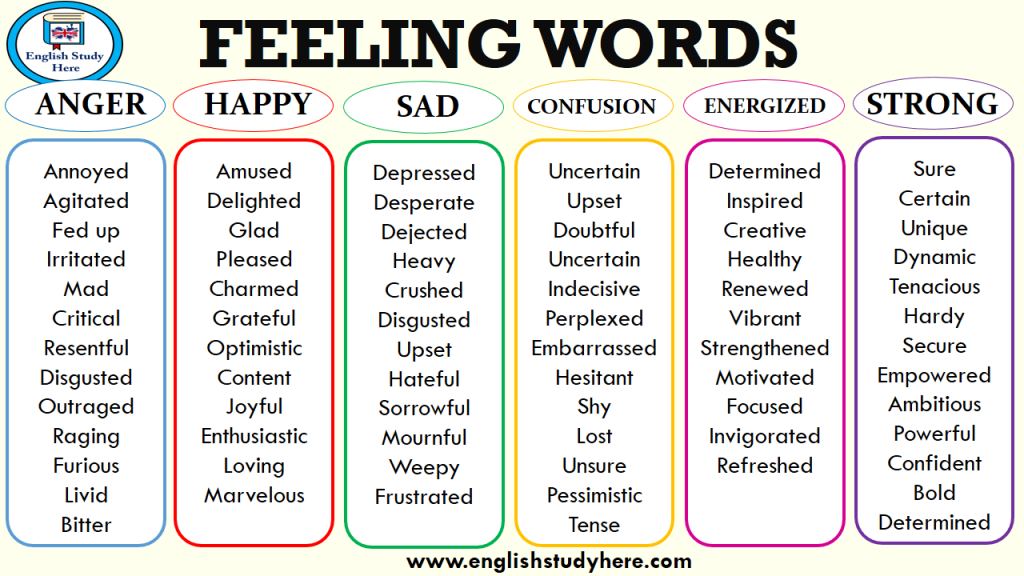 And acceptance will free your attention and energy from the shackles of anger and resentment, enabling you to be more skillful in the present.
And acceptance will free your attention and energy from the shackles of anger and resentment, enabling you to be more skillful in the present.
Copyright 2017 Dan Mager, MSW
7 Signs to Look For
Written by WebMD Editorial Contributors
Medically Reviewed by Dan Brennan, MD on November 24, 2020
In this Article
- What Is Resentment?
- Signs of Resentment
- Treating Resentment
What Is Resentment?
Resentment describes a negative emotional reaction to being mistreated. There is no one cause of resentment, but most cases involve an underlying sense of being mistreated or wronged by another person.
Experiencing frustration and disappointment is a normal part of life. When the feelings become too overwhelming, they can contribute to resentment. When this happens, trust and love in relationships are broken and sometimes never repaired.
A person experiencing resentment will often feel a complex variety of emotions that include anger, disappointment, bitterness, and hard feelings.
Resentment is commonly triggered by:
- Relationships with people who insist on being right all the time
- Being taken advantage of by another
- Feeling put down
- Unrealistic expectations of others
- Not being heard
- Interactions with people who are always late
Signs of Resentment
Resentment leads to the inability to let go or forgive, at least temporarily. Several signs, however, can indicate that you or someone you know might be on the path toward experiencing overwhelming resentment.
Here are some of the signs and symptoms to watch out for:
Recurring Negative Feelings
It’s common to feel recurring negative feelings toward people or situations that hurt you. These emotions may include:
- Anger
- Frustration
- Hostility
- Bitterness
- Hard feelings
- Uneasiness
When these feelings become unbearable, they can lead to resentment.
Inability to Stop Thinking About the Event
Sometimes resentment leads to an inability to stop thinking about the event that caused intense emotion.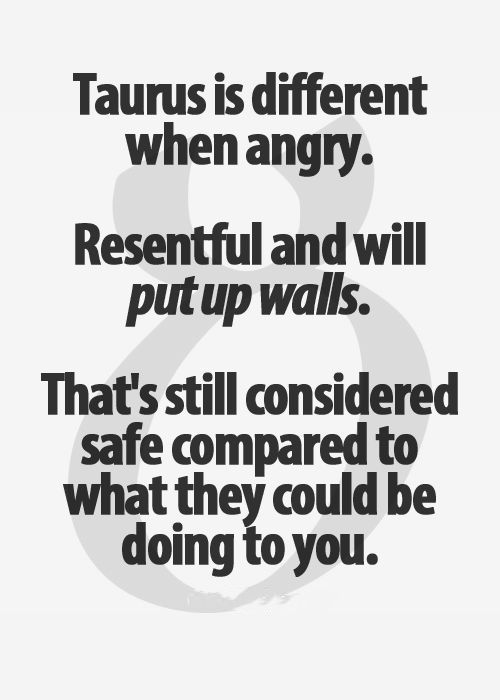 Recurring negative thoughts may take over and linger for long periods of time — sometimes even years.
Recurring negative thoughts may take over and linger for long periods of time — sometimes even years.
Feelings of Regret or Remorse
For some people, resentment may cause feelings of disappointment or remorse. When a person thinks back to a stressful event, they may respond to regret and remorse with self-blame and wishing they had acted differently.
Fear or Avoidance
When you feel resentful, certain people or situations may trigger unwanted memories of wrongdoing. This may cause you to avoid situations or people who bring up these negative emotions. People will often do this to protect themselves and their own well-being.
A Tense Relationship
Resentment can bring about changes in your relationship. Some people deal with resentment by holding grudges and acting out passive-aggressively.
For others, resentment can lead to ending relationships where the wrongdoing took place.
Feeling Invisible or Inadequate
Engaging with people or places that remind you of past mistreatment may make you feel invisible or inadequate. When this happens, old feelings of anger and bitterness may begin to reappear and grow stronger.
When this happens, old feelings of anger and bitterness may begin to reappear and grow stronger.
If you’ve been hurt by someone and start to notice any of these things, it could be a sign that you’re beginning to experience resentment.
Inability to Let Go of Anger
In some instances, resentment may make it hard for you to let go of anger. You might even experience a strong desire for revenge. Holding on to such a high level of negativity takes a toll on your mental health.
Recognizing the signs, taking preventive action, and getting treatment can help.
Treating Resentment
If you’re beginning to feel as though your resentment is becoming too much, talk to your doctor. They may refer you to a psychologist or psychiatrist.
The right solution for resentment depends mainly on its cause and the individual. The path to healing involves forgiveness and finding a way to make peace with what happened so you can move on with life.
Consider Why It’s Difficult to Forgive
When you consider moving on from resentment, what feelings come up? When you first try to let go of resentment, it’s normal to have a lot of emotions come up like resistance, fear, and anger especially when resentment has been held for a long time.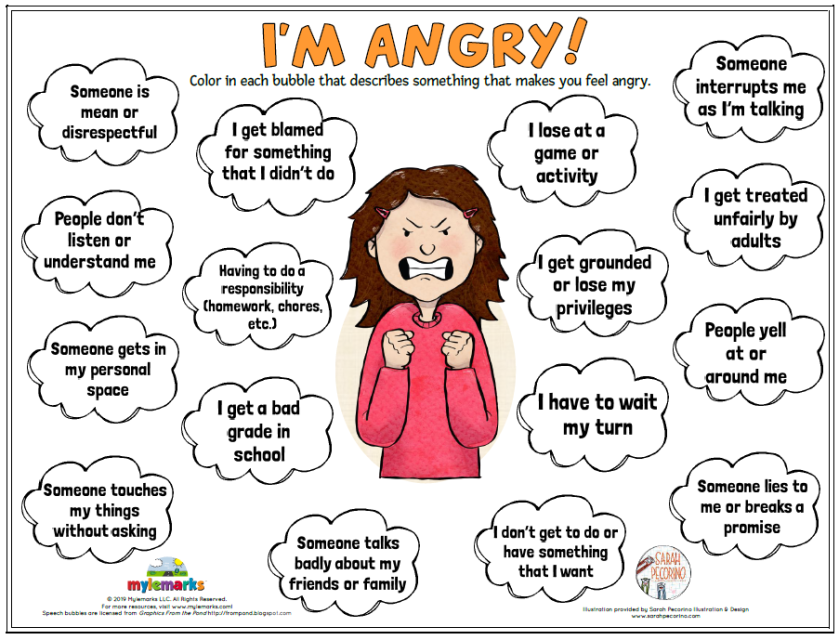
It can be helpful to take time to process these feelings.
Use Self-Compassion
Some people use resentment as a coping mechanism to help them deal with painful or difficult emotions. While this may feel soothing at first, it can be damaging in the long run.
Extending compassion to yourself helps you heal so you can process your pain with mindfulness and kindness.
Try Empathy
Exploring why the situation or person caused resentment allows you to uncover potential misunderstandings. By trying to see things from another perspective, you may be able to reduce resentment.
Lean Into Gratitude
It’s normal to get caught up in all the negative things happening around you. You can bring more happiness and positivity into your life by focusing on the things that are going right. It can help to think about things and people you are grateful for.
"Anger, resentment, anger - this is normal." How to deal with negative emotions - Personal experience on vc.
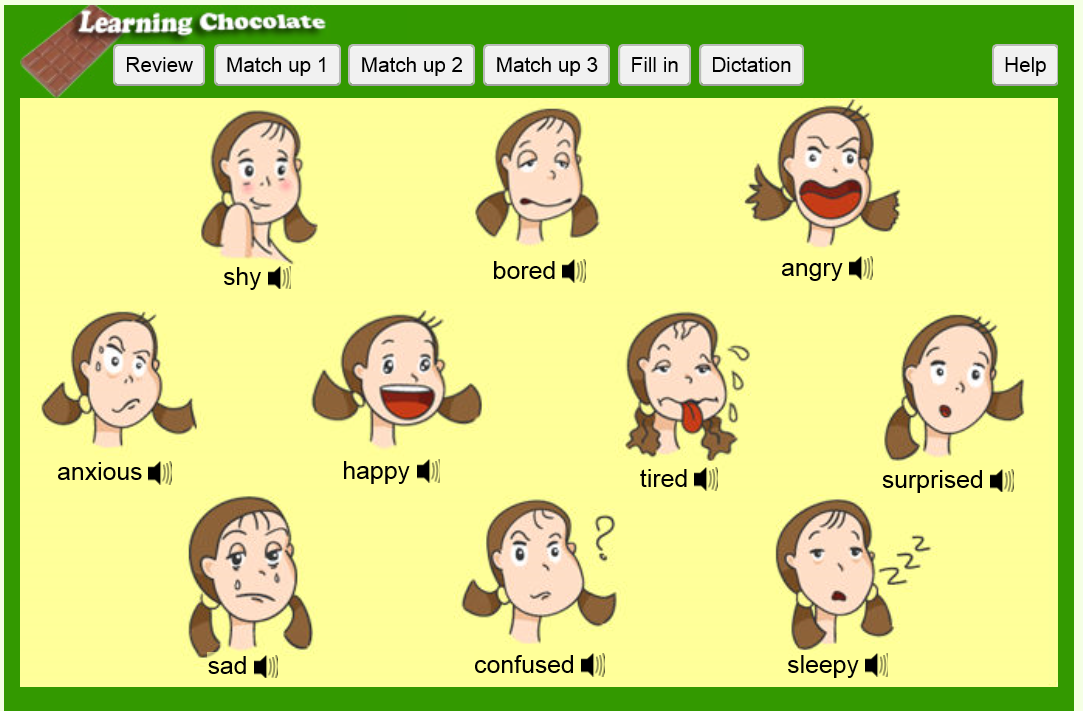 ru
ru “In order to be happy, I need to be an optimist, keep calm, keep my emotions under control,” such phrases are often heard from people who turn to me for help, wanting to become better and improve their lives. Of course, a positive attitude is always good, but we must not forget that various emotions are given to us for a reason, and we cannot exclude them from our lives. Emotions are the key to our inner world, understanding ourselves and finding better ways. What do anger, resentment or anger tell us? What to do with them, and how to direct them in a useful direction? nine0004
685 views
Accept difficult emotions
Deciding to become the best version of yourself, establish contact with others and fill your life with positive, many forbid themselves to experience irritation or resentment. They turn a blind eye to signals coming in the form of emotions, experience shame, or even punish themselves for anger and sadness. The problem often lies in high expectations and unrealistic pictures, where people paint themselves an externally imposed ideal - a person who always remains a confident and unflappable optimist and who cannot be hurt, upset or pissed off. nine0004
The problem often lies in high expectations and unrealistic pictures, where people paint themselves an externally imposed ideal - a person who always remains a confident and unflappable optimist and who cannot be hurt, upset or pissed off. nine0004
In fact, it is important to accept the fact that anger, resentment, anger and other "negative" emotions are completely normal. No need to perceive them as something bad and try to get rid of at any cost. Refusing a wide range of emotions, a person loses contact with himself, ceases to understand what is happening in his inner world. At the same time, emotions do not disappear anywhere - being suppressed, they "hide" deep inside and lead to more serious consequences than a quick burst of anger or tears in public. For example, repressed emotions can cause increased anxiety or obsessive thoughts. nine0004
Accept that you can be angry, afraid, or sad and don't judge yourself for it. Be aware of these emotions, but do not accumulate or concentrate on them, but live in a timely manner in order to then gain a sense of freedom.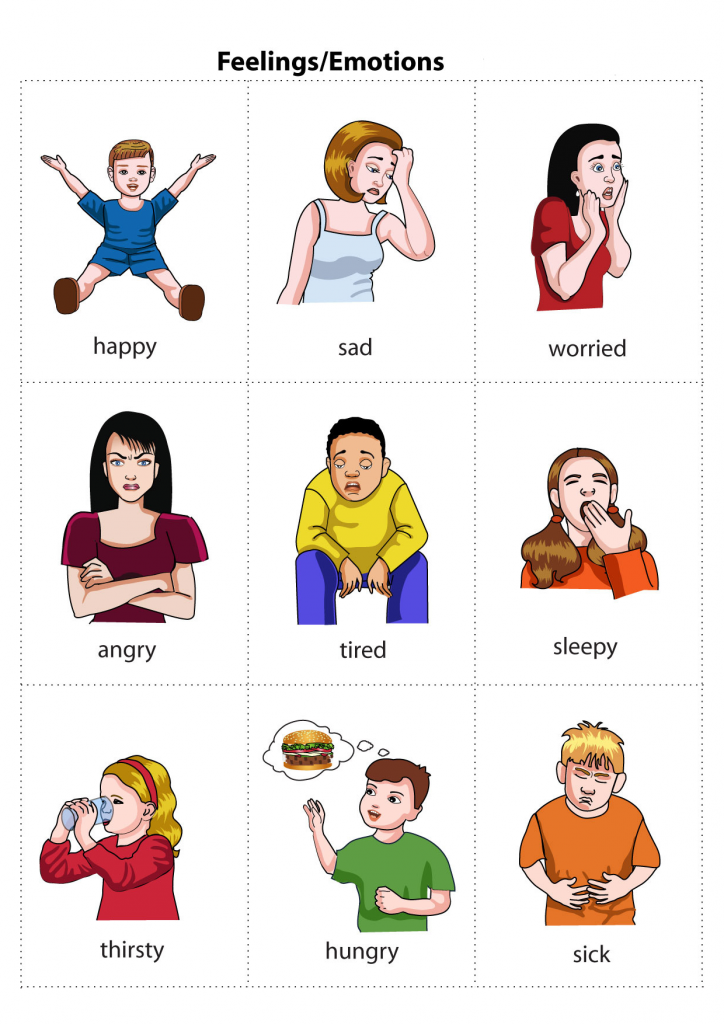
Do not cultivate negative emotions
Realizing that anger or envy is not something bad, people sometimes go to the other extreme and begin to deliberately cultivate them in themselves in order to get the motivation to become better, stronger, brighter than those around them. For a while, negatively charged emotions can be a good fuel for achievement, but with this approach, you can burn out very quickly. Instead, it is better to let go of the situation, just live the emotion, and then continue your movement, relying on a kind and easy attitude towards other people, on a sense of gratitude and on your own aspirations. This method has no side effects, it does not drain mental strength and serves as a much more stable engine on the path of personal development. nine0004
It is just as dangerous to intentionally create an “emotional swing” for oneself, to disperse negative emotions and to deliberately intensify anger, envy and anger, as it is to deny and suppress them.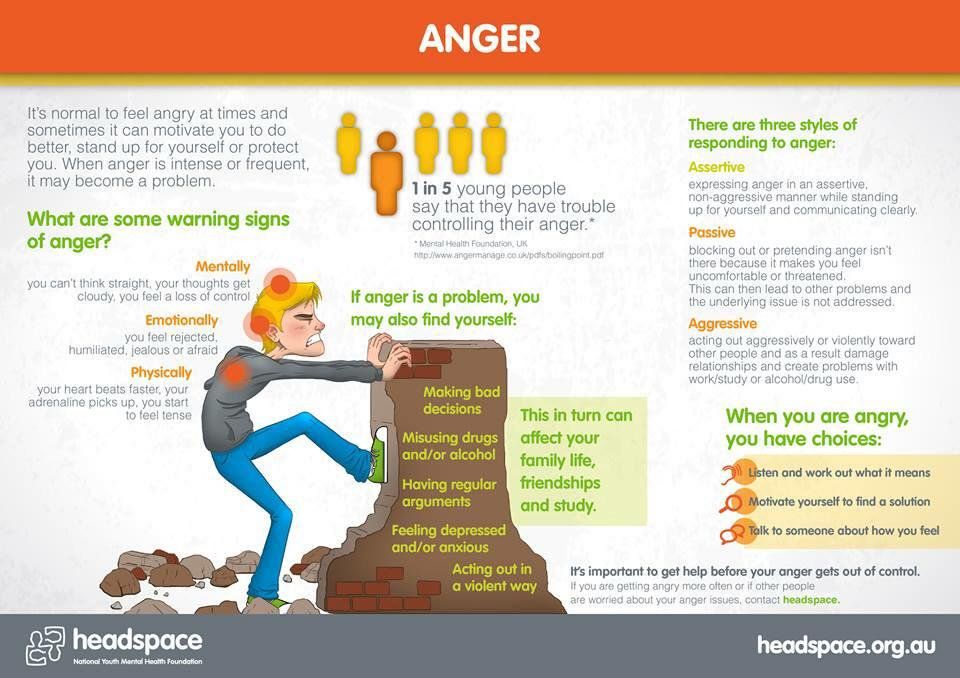 Only an honest relationship with oneself, a thoughtful analysis of sensations and a careful attitude to one's feelings can lead to balance, poise and the ability to better understand oneself and others.
Only an honest relationship with oneself, a thoughtful analysis of sensations and a careful attitude to one's feelings can lead to balance, poise and the ability to better understand oneself and others.
Practice self-observation
Breathe calmly, look around, give yourself time to return to the present moment and ask yourself: “What emotion am I feeling right now?”. A similar method of self-observation, which I talked about in my blog, is great for tracking, understanding and even redirecting your emotions. If at first it is difficult for you to determine what exactly you are feeling, use emotion tables that can be easily found on the Internet. nine0004
Ask yourself what you are feeling in your body, what urges you are experiencing emotion. How can she help you? What is it trying to convey to you? This simple practice of mentally describing and naming an emotion helps develop emotional intelligence and better understand not only yourself but also those around you.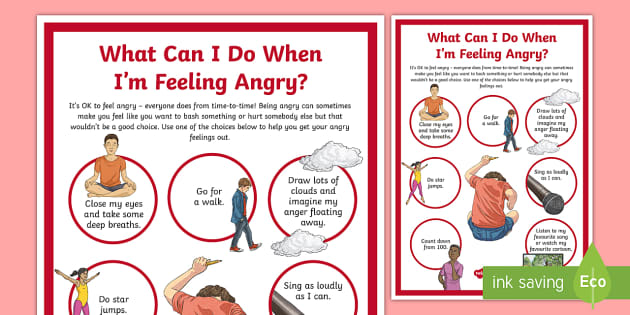 By identifying the possible cause of an emotion, you can see its benefits and understand what exactly makes you angry, upset, or anxious. This knowledge can give you clues on which path to take in order to improve your life and fill it with what brings joy instead of negativity. nine0004
By identifying the possible cause of an emotion, you can see its benefits and understand what exactly makes you angry, upset, or anxious. This knowledge can give you clues on which path to take in order to improve your life and fill it with what brings joy instead of negativity. nine0004
Explore relaxation practices
By living and being aware of emotions, you no longer let them accumulate and then turn into a dangerous storm. However, our task is to make sure that not emotions control you, but you control emotions. This will help not only the practice of self-observation, but also various ways of relaxation. In this matter, an individual approach is important. Each person must determine for himself which method is more effective for him when he needs to pull himself together and calm down. For some, this is meditation or a walk in the fresh air, for others, physical training at a measured pace or playing with a pet. nine0004
Try different relaxation practices and find the best ones for you.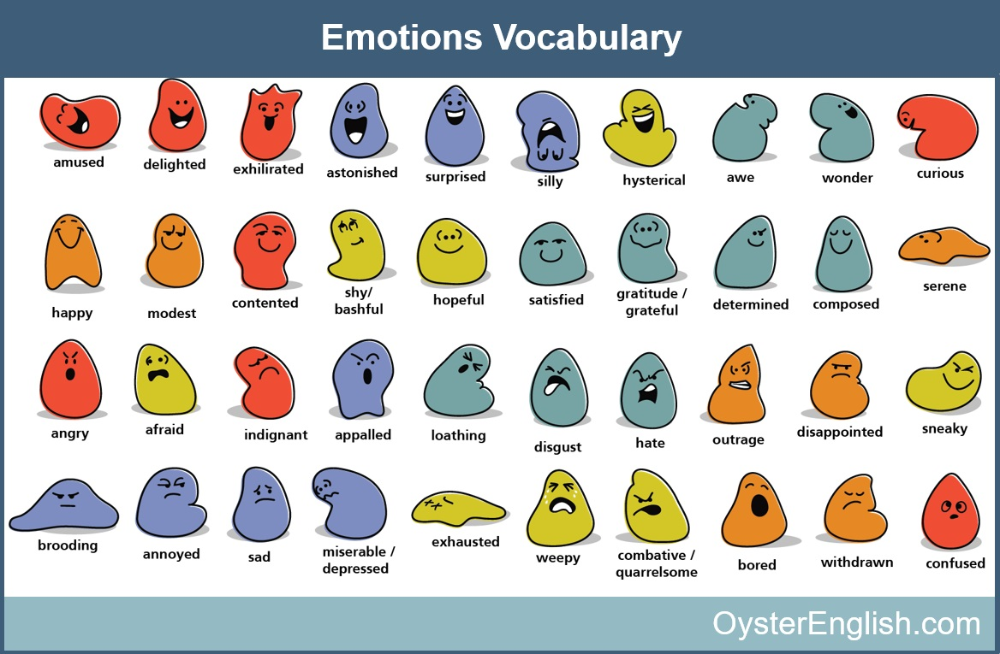 Breathing exercises, playing with pets, herbal teas, yoga, reading a book, listening to your favorite soothing music or chatting with a coach - choose from a variety of options and create your own unique program that will allow you to take control of emotions and redirect them in the right direction.
Breathing exercises, playing with pets, herbal teas, yoga, reading a book, listening to your favorite soothing music or chatting with a coach - choose from a variety of options and create your own unique program that will allow you to take control of emotions and redirect them in the right direction.
Take care of yourself: how to get rid of anger, envy and resentment
-
Society
-
News
Psychologist Natalya Tolstaya told StarHit what needs to be done in order to get rid of the four main negative emotions. It turned out that everything is much simpler than many people think. Just listening to yourself is enough.
August 20, 2017 06:0032 525
Take care of yourself: how to get rid of anger, envy and resentment
- Source:
- iStock/GettyImages
It's no secret that negative emotions are bad for humans. They destroy health, sometimes even cause a number of terrible diseases, including cancer. But there are positives in negative emotions. They are our engine. A person who does not experience aggression and envy is inert, he does not achieve anything in his career, he is not popular with the opposite sex. The main thing is to be able to manage feelings, and then they will work for your benefit. nine0004
They destroy health, sometimes even cause a number of terrible diseases, including cancer. But there are positives in negative emotions. They are our engine. A person who does not experience aggression and envy is inert, he does not achieve anything in his career, he is not popular with the opposite sex. The main thing is to be able to manage feelings, and then they will work for your benefit. nine0004
Aggression
She is also anger, she is also malice, which is characteristic even of small children. Pay attention to how the baby, not yet learning to walk, violently clenches his fists when he is not given his favorite toy. Aggression is a signal that your inner child is indignant, because something is not going according to his script.
Feeling that anger boils in you, you need to ... welcome it. Yes, yes, and say: "Hello, anger." Thus, you recognize your weaknesses, do not dismiss them. Tell yourself: yes, I'm angry, so what? Who is better off for this? I just feel worse.So calm down! And so repeat to yourself twenty times: calm down, calm down ...
If that doesn't help, grab your earlobe and take ten deep breaths. Are you still angry? Squat or go outside ten times and walk around the nearest building at a fast pace three times - transform anger into a sport. And most importantly - during a flash of anger, do not give free rein to the language, so that you do not have to regret what was said later. If possible, lie down, if not, sit down. In this way, you "ground" - give vent to your negative feelings.
There are also physiological reasons for anger - because of PMS in women or from an overabundance of contacts in those whose professions are closely related to communication with people: sales assistants, managers, cashiers. In such cases, interaction with water helps. Ideally, take a dip, or at least wash your face. Avoid contact with the irritant. nine0004
Angry that your daughter didn't wash the dishes when you arrived? Move away from the sink.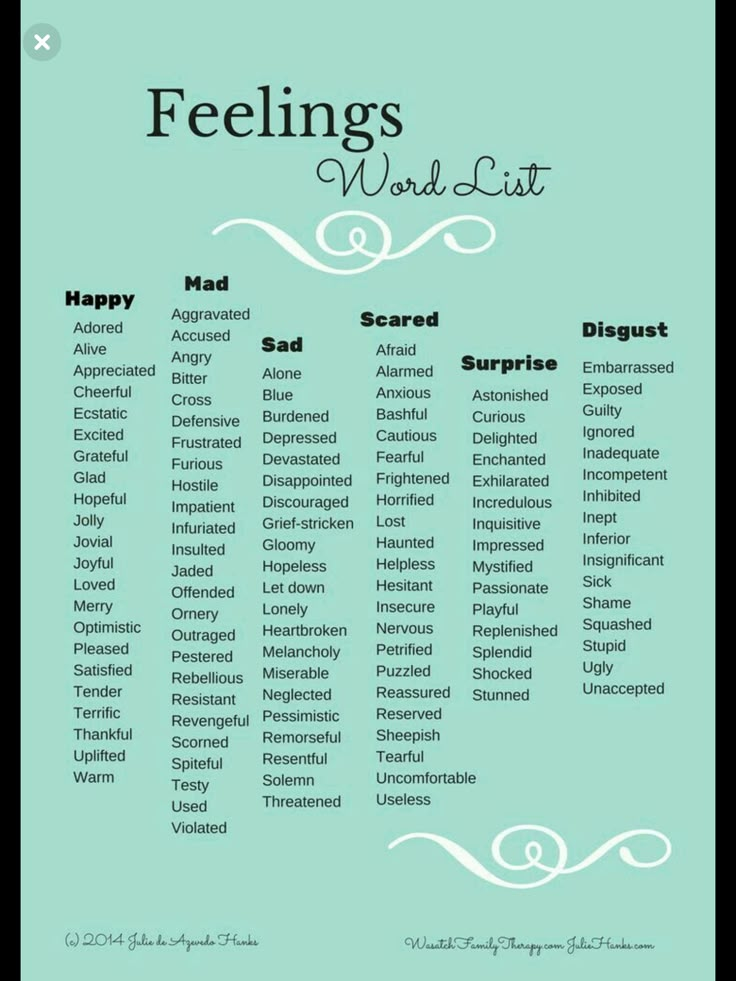 Annoying colleague? Rotate the table so you can't see it.
Annoying colleague? Rotate the table so you can't see it.
ENVY
Envy is a habit. Like smoking, like a passion for alcohol. She must be exterminated. Only white envy, which is close to admiration, is not harmful when you think: wow, what a beautiful dress your colleague is wearing! I want the same for myself! If your thoughts are from the series “Again in a new piece of clothing, such a dog!”, You need to work on yourself. First, do not try on other people's achievements for yourself. Yes, the neighbor bought herself a new car, but you don't know how much she studied and worked to earn for it! Do you want to be a boss like her? Are you sure you want her job with the hassle? nine0004
- Source:
- Pixabay.com
Second, if you feel jealous, compliment the object of your envy. This defuses the oppressive atmosphere, plus you will make the person pleasant, and his gratitude for what you said will reduce the degree of your envy.
Thirdly, brag less. Usually envious people like to talk about their achievements. This is not worth doing, because boasting is the flip side of envy. And, by pissing off others, you then attract negativity to yourself. nine0004
OFFENSE
- Source:
- Pixabay.com
Resentment cannot be hushed up. If a person makes you unpleasant, he needs to be told about it, because more often people offend others unconsciously. If you see that the speaker of nasty things is gloating, ask directly: did he himself enjoy what was said? This is a phrase from psychological aikido, it instantly "cuts down" the lover to spoil the mood of others. If resentment against your parents or boss is deep in your soul, load yourself with work or go headlong into love, and do not dwell on negative emotions. Do not be offended by a person that he did not live up to our expectations. Imagine the situation: you broke your little finger on a chair. nine0004
It has nothing to do with it, but you are offended and hurt, right? You are angry at the chair, although it is not his fault that what happened.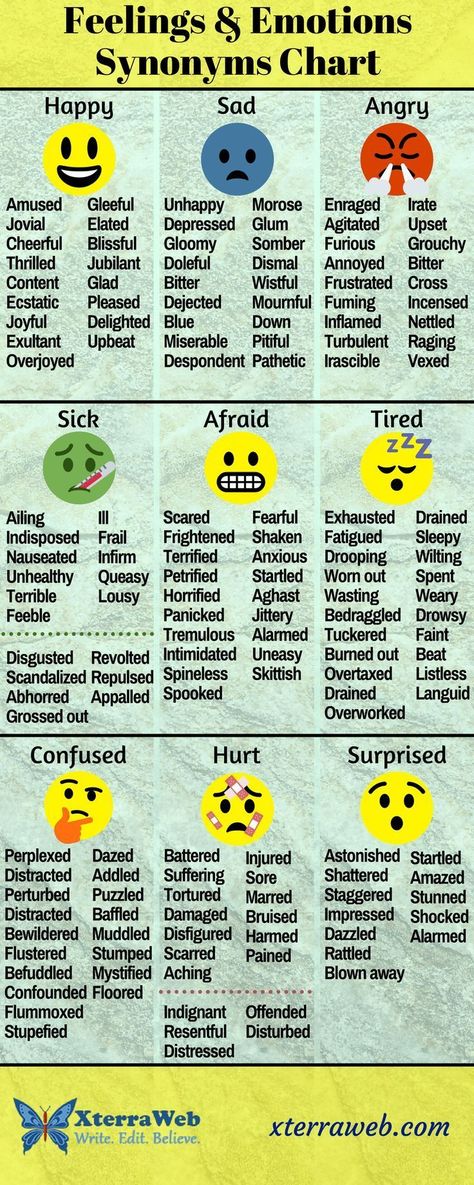 So it is with people. No one is obligated to behave the way you want. And forget the phrase “I don’t deserve this”, as well as the question “Why do I need this?”. Accept whatever happens to you. No one is to blame for your troubles but you. He says to himself: yes, today I was fired, it's not scary, tomorrow I will find a new job. When you learn not to dwell on the negative, you will feel better.
So it is with people. No one is obligated to behave the way you want. And forget the phrase “I don’t deserve this”, as well as the question “Why do I need this?”. Accept whatever happens to you. No one is to blame for your troubles but you. He says to himself: yes, today I was fired, it's not scary, tomorrow I will find a new job. When you learn not to dwell on the negative, you will feel better.
SAD
- Source:
- Pixabay.com
Longing is an emotion that should not be driven away from oneself. Sadness is normal, it is a kind of emotional rest for the body. Those who always have fun, I want to put in the clinic of neuroses. If the soul is bad, you need to speak out, do not keep the negative in yourself. And then go to sleep. No wonder our ancestors believed that the best cure for blues is to take a nap under a willow bush.
If the longing drags on, this is a signal that you do not want to take responsibility for your life. For those who are constantly sad, as a rule, everyone around is to blame - the government, parents, husband. Collective therapy, some kind of life-affirming training, will help here. nine0004
Collective therapy, some kind of life-affirming training, will help here. nine0004
Women will benefit from changing their image and updating their wardrobe. If there is no money, the so-called “zyring” helps - a raid on shops in order to gawk. Furs are a good antidepressant - go to a boutique and try on fur coats. Buy something bright, like a teacup. Do something nice for yourself: watch your favorite movie, chat with your best friend. And be sure to drink plenty of clean water - negative emotions will leave you with liquid.
Cats are a great cure for sadness: pet the animal and the melancholy will go away
- Source:
- iStock/GettyImages
Dust in the eyes
According to a study conducted by the Royal Society for Health in Great Britain (RSPH), viewing photos on social networks has a bad effect on the human psyche. Instagram (an extremist organization banned in Russia), Facebook (an extremist organization banned in Russia), Snapchat, YouTube, and Twitter were studied.